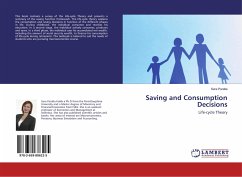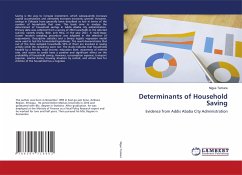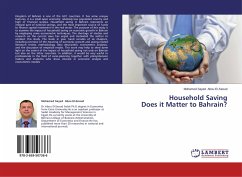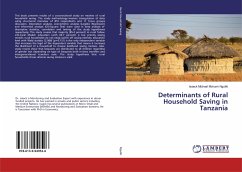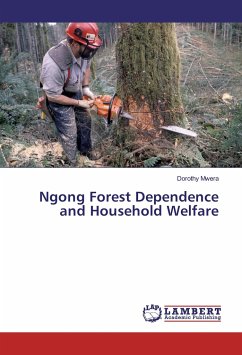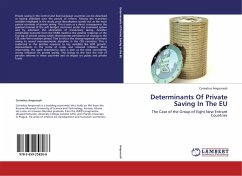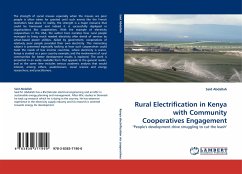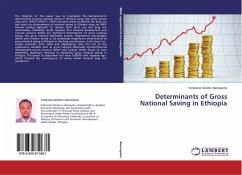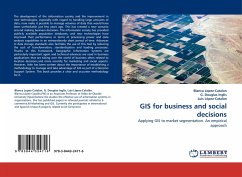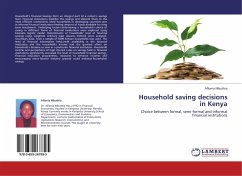
Household saving decisions in Kenya
Choice between formal, semi-formal and informal financial institutions
Versandkostenfrei!
Versandfertig in 6-10 Tagen
36,99 €
inkl. MwSt.

PAYBACK Punkte
18 °P sammeln!
Household's financial Savings form an integral part of a nation's savings level. Financial institutions mobilize the savings and allocate them to the most efficient investments. Most households in developing countries save in informal financial institutions limiting amount of funds available for long term investments. Underlying factors determining a household's choice of saving in different forms of financial institutions were explored using bivariate logistic model. Determinants of households' level of financial savings using weighted ordinary least squares method were analysed. Secondary da...
Household's financial Savings form an integral part of a nation's savings level. Financial institutions mobilize the savings and allocate them to the most efficient investments. Most households in developing countries save in informal financial institutions limiting amount of funds available for long term investments. Underlying factors determining a household's choice of saving in different forms of financial institutions were explored using bivariate logistic model. Determinants of households' level of financial savings using weighted ordinary least squares method were analysed. Secondary data, from a sample of 6598 Kenyan households was used. The level of financial information held,credit availability in the financial institution and the household's income had the greatest effect on household's decision to save in a particular financial institution. Household income and perceptions of high interest rates on savings held in financial institutions significantly increased the level of household financial savings. Financial education programmes, measures to enhance incomes and encouraging micro-finance industry growth could enhance households' savings.



